I have been wanting to make the tea eggs that John posted since the day they appeared on the forum, and finally did it.
Here is the recipe as John posted it. "Here is the recipe from my stepmother who is a terrific Chinese cook. Hard boil 1 doz eggs. Drain water. Crack eggs all over, don't peel. Replace eggs in pot along with 1/2 cup soy sauce, 2 tsp salt, couple star anise, 1 tsp Chinese five-spice stew powder, 2 TBSP black tea, a sliced apple (she specified dried apple but I don't see why fresh wouldn't do), 1 tsp Chinese peppercorn, a couple red peppers. Add enough water to cover eggs. Boil then simmer 2 hours. Leave eggs marinating for a few hours to a few days, refrigerating if desired. I'll find out in a couple days how they turn out."
Here's how I did it. First, my mise en place, eggs on a steamer rack, apple slices and a few pieces of tangerine peel (which were mentioned in a few other recipes),black tea, five spice powder, Sichuan pepper, star anise, sea salt, red pepper flakes because I was out of small red chiles, and soy sauce in the measuring cup.
The eggs were steamed to hard cooked. That was a mistake, as soon as I took the eggs out of the steamer rack and began to crack the shells, I knew I was in trouble. Steamed eggs peel so easily that I had to support the egg in my cupped left hand as I gently tapped the shell - in fact there were a few pieces that just fell off and many that were barely attached.
The flavoring ingredients were combined in a round stainless steel container (actually it's the pot portion of a Revereware saucepan before the handle was attached and the steel polished). It's just the right size for the rack and top that go to my set of three Indian stacking inserts used in my 7 liter pressure cooker. The Indian insert pans were too shallow to put the eggs in. The eggs were added after bringing the other ingredients to a simmer and stirring to dissolve the salt and distribute the tea and spices.
The inner pot and rack handle go into the pressure cooker, the cover put on and locked and the cooker brought up to low pressure. This technique was posted recently on Hip Pressure cooking. I used John's ingredients as he posted them but wanted to try the pressure cooker method for cooking them. They were cooked at low pressure for twenty minutes, the heat was turned off and the pressure allowed to come down naturally.
Here are the eggs after coming out of the pressure cooker.
I left them in the cooking liquid with all the flavorings until everything was cooled to room temperature and then put the the covered inner pot in the refrigerator for three days. Today I took them out and peeled two to have for lunch (Max was working on his Mom's condo and didn't come home). You can see that the one on the left has nice even markings while the one on the right has some very dark areas where the shell either fell off during cooking or was so loose that lots of the marinade soaked in. They tasted great and the more intensely flavored areas were delicious, they just didn't look as pretty. The entire underside of the egg on the right is dark, dark brown.
My original plan was to serve them with cold char siu pork sliced and on a big bed of salad greens with sliced cucumber and tomatoes. That plan has to wait, instead I made this.
I hope it's not a cultural affront that I made egg salad. The flavored eggs worked really well with just some mayonnaise, a little Chinese mustard and some coarsely ground Sichuan and black pepper. The salty olives and pepper were a nice contrast. I had this on a piece of toast from the Italian Easter bread that my DIL's mother made and sent home with us after our family dinner yesterday. And the dark brown areas were fine chopped up! I'm going to make it again tomorrow when Max can enjoy it too and use the rye bread that I made with Ann's recipe and froze last week.
The next time I do this, I'll simmer the eggs to hard cooked, instead of steaming, and plan a more Chinese meal.
Thank you John, and thanks to your stepmother for sharing the recipe with us.
Lee
Here is a link that might be useful: Marbled Chinese Tea Eggs - In the Pressure Cooker
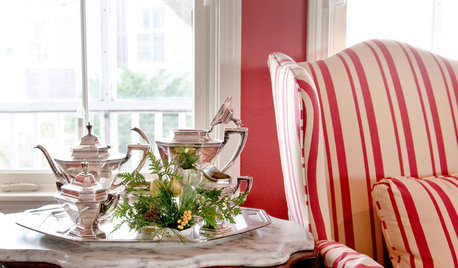

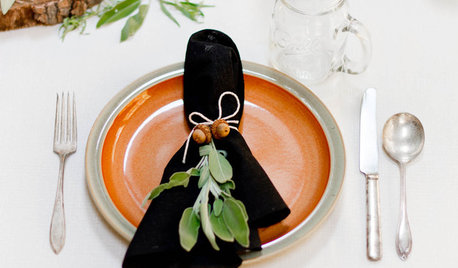

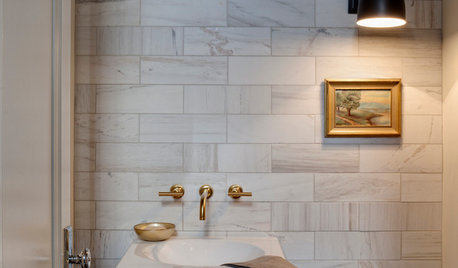


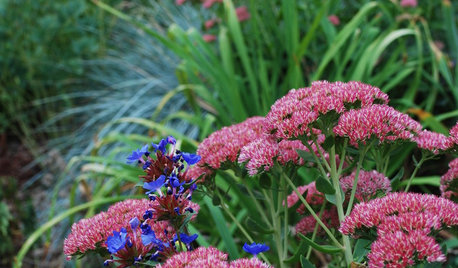
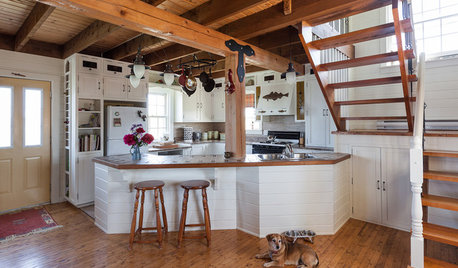




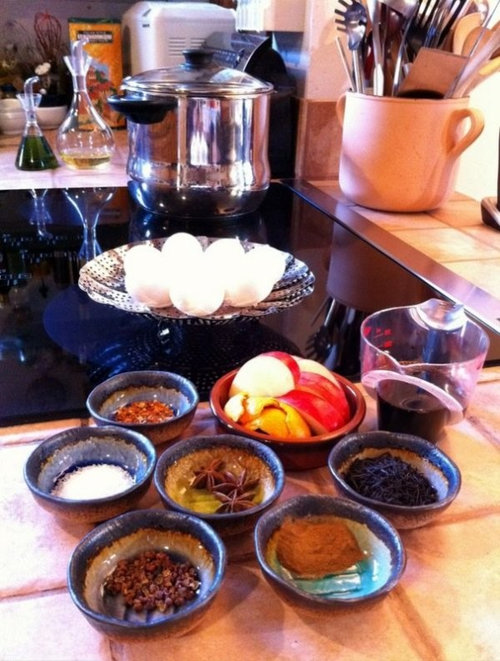






dcarch7 d c f l a s h 7 @ y a h o o . c o m
mustangs81
Related Discussions
Let's avoid Chinese stuff.
Q
Bird's Egg #3
Q
Tea Leaf Compost Infested With Tiny Worms
Q
Byron's World Famous Tea Recipe For Starting Seeds (Entire Thread)
Q
John Liu
hipprc_gmail_com
lsr2002Original Author
chase_gw